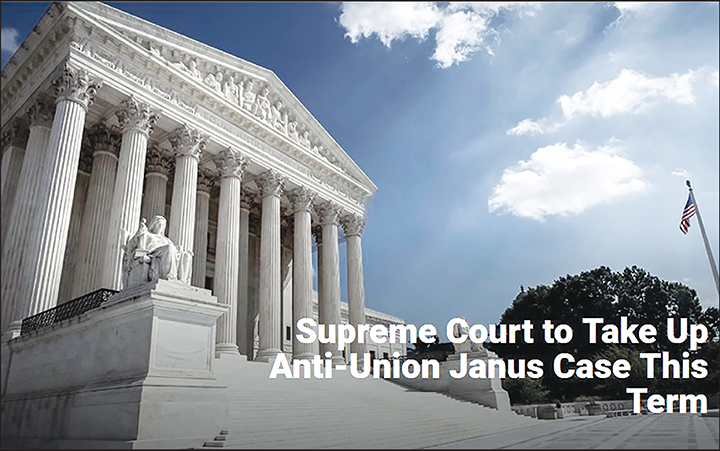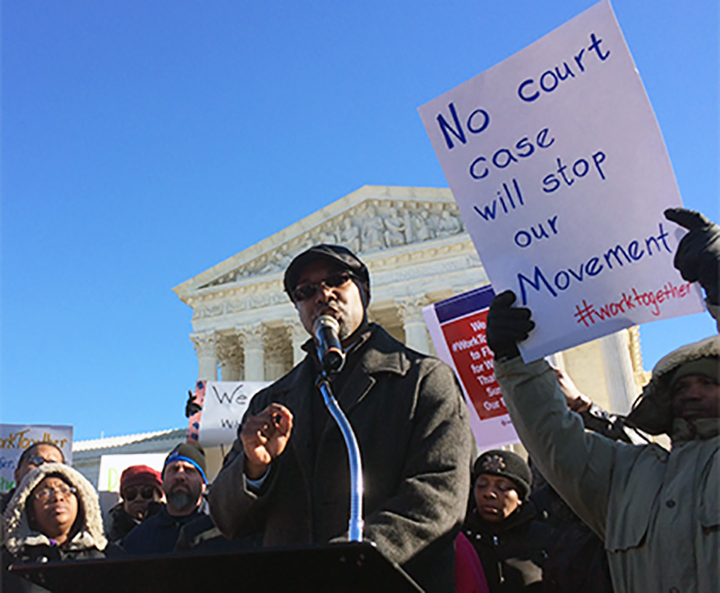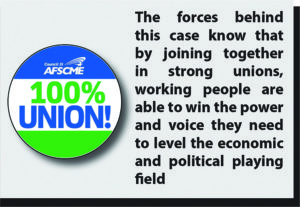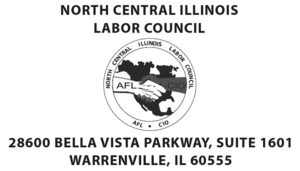
The forces behind this case know that by joining together in strong unions, working people are able to win the power and voice they need to level the economic and political playing field. However, the people behind this case simply do not believe working people deserve the same freedoms they have: To negotiate a fair return on their work.
Fox Valley Labor News staff reports
Thursday, Oct. 5, 2017
In a rigged economy, workers say the freedom to come together in strong unions is more important than ever
WASHINGTON, D.C. — The U.S. Supreme Court announced it would decide Janus v. AFSCME Council 31, a lawsuit which aims to take away the freedom of working people to join together in strong unions to speak up for themselves and their communities.
Janus — which the nation’s highest court will take up in the October 2017-June 2018 term — is a blatantly political and well-funded plot to use the highest court in the land to further rig the economic rules against everyday working people.

The U.S. Supreme Court will take up the anti-union Janus case this term. The case is a blatant, years-long campaign to weaken unions. The case started with an overt political attempt by Illinois’ Republican billionaire Gov. Bruce Rauner to attack public service workers through the courts. Photo courtesy of AFSCME Council 31
The billionaires and corporate special interests funding this case view unions as a threat to their power, so they are trying to get the U.S. Supreme Court to rig the system even more in favor of those already at the top. This case started right here in Illinois when billionaire Illinois Republican Gov. Bruce Rauner attacked public service workers through the courts.
Rauner originated this case in a lawsuit he filed against AFSCME Council 31 to try to weaken the union by banning Fair Share fees in state government.

When the federal court said Rauner didn’t have standing to bring such a suit, he found a lone state employee — Mark Janus — to allow the legal challenge to proceed in his name.
AFSCME Council 31 Executive Director Roberta Lynch said billionaires like Rauner are trying to rig the rules to take more power and influence for themselves.
“The forces behind this case know that by joining together in strong unions, working people have the voice they need to level the economic and political playing field.”
The merits of the case are clear. Since 1977, a Supreme Court case called Abood v. Detroit Board of Education has effectively governed labor relations between public sector employees and employers, allowing employers and employees the freedom to determine labor policies that best serve the public.

When reviewing the legal merits of Janus, it is clear this attempt to manipulate the court against working people should be rejected.
AFSCME, along with three other public service unions — the American Federation of Teachers (AFT), the National Education Association (NEA) and the Service Employees International Union (SEIU) – issued a joint statement opposing Janus.
AFSCME President Lee Saunders said the merits of the case, 40 years of Supreme Court precedent and sound law, are on organized labor’s side.
“This case is another example of corporate interests using their power and influence to launch a political attack on working people and rig the rules of the economy in their own favor. When working people are able to join strong unions, they have the strength in numbers they need to fight for the freedoms they deserve, like access to quality health care, retirement security and time off work to care for a loved one,” Saunders added.

